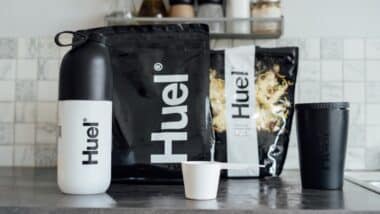 A federal judge dismissed a proposed class action lawsuit brought by Whole Foods consumers who allege the upscale grocery chain mislabeled the weights on the foods they bought, because the plaintiffs failed to show they were overcharged for any particular item.
A federal judge dismissed a proposed class action lawsuit brought by Whole Foods consumers who allege the upscale grocery chain mislabeled the weights on the foods they bought, because the plaintiffs failed to show they were overcharged for any particular item.
Plaintiffs Sean John and Joseph Bassolino brought forth separate would-be class actions alleging deceptive business practices under New York’s General Business Law and false advertising, seeking damages over claims that they bought several mispriced packages at the stores over the last six years. Both lawsuits were consolidated in October.
According to the Whole Foods proposed class action, the allegations stem from a June 2015 New York City Department of Consumer Affairs (DCA) investigation release stating that Whole Foods engaged in “systemic overcharging” for pre-packaged foods, calling it “the worst case of mislabeling” investigators have seen.
During its investigation, the DCA found that 89 percent of the Whole Foods products tested, including berries, nuts, vegetables, meat and baked goods were incorrectly labeled and failed to meet federal packaging guidelines.
John and Bassolino cite the released report from the city’s Department of Consumer Affairs that said Whole Foods had a consistent bad habit of overstating the weight of prepackaged foods, resulting in overcharges.
The consumer affairs department and Whole Foods reached a settlement in December 2015 in which the company agreed to pay $500,000 and implement policies and procedures on pricing and labeling. In the Whole Foods settlement, there was no finding of systemic or intentional misconduct and no admission of wrongdoing, as the company said the instances of mislabeling “were incidents of simple human error.”
On Monday, U.S. District Judge Paul Engelmayer dismissed the proposed class action lawsuit for lack of Article III standing. The judge said the two men had fallen short of meeting the requirement for standing because they failed to allege “concrete and particularized” harm.
“A claim based only on probabilistic evidence of injury, devoid of any factual allegations particular to the plaintiff and without a basis to plausibly infer that all covered products were implicated, does not adequately plead injury-in-fact,” Judge Engelmayer said.
The plaintiff consumers are represented by Jeremiah Frei-Pearson, D. Greg Blankinship and Todd Garber of Finkelstein Blankinship Frei-Pearson & Garber LLP and Marie Napoli and Annie Causey of Napoli Shkolnik PLLC.
The Whole Foods Overcharging Class Action Lawsuit is Sean John v. Whole Foods Market Group Inc., Case No. 1:15-cv-05838, in the U.S. District Court for the Southern District of New York.
UPDATE: On May 31, 2016, the plaintiff asked the Second Circuit Appeals Court to vacate the dismissal of a proposed class action lawsuit accusing Whole Foods of overcharging its packaged goods, stating that his regular purchases of cheese and chocolate cupcakes substantiate plausibility of injury.
UPDATE 2: On July 18, 2016, the plaintiff filed a second appeal to the Second Circuit Appeals Court to reverse the dismissal, saying a New York Department of Consumer Affairs (DCA) investigation supports his claims.
UPDATE 3: On June 2, 2017, the 2nd U.S. Circuit Court of Appeals revived a class action lawsuit alleging Whole Foods overcharges customers for prepackaged foods, finding that the New York federal court handling the case erred when it determined the plaintiffs failed to plausibly allege they suffered an injury.
ATTORNEY ADVERTISING Top Class Actions is a Proud Member of the American Bar Association LEGAL INFORMATION IS NOT LEGAL ADVICE
Top Class Actions Legal Statement
©2008 – 2025 Top Class Actions® LLC Various Trademarks held by their respective owners This website is not intended for viewing or usage by European Union citizens.















3 thoughts onJudge Tosses Overcharging Claims in Whole Foods Class Action
UPDATE 3: On June 2, 2017, the 2nd U.S. Circuit Court of Appeals revived a class action lawsuit alleging Whole Foods overcharges customers for prepackaged foods, finding that the New York federal court handling the case erred when it determined the plaintiffs failed to plausibly allege they suffered an injury.
UPDATE 2: On July 18, 2016, the plaintiff filed a second appeal to the Second Circuit Appeals Court to reverse the dismissal, saying a New York Department of Consumer Affairs (DCA) investigation supports his claims.
UPDATE: On May 31, 2016, the plaintiff asked the Second Circuit Appeals Court to vacate the dismissal of a proposed class action lawsuit accusing Whole Foods of overcharging its packaged goods, stating that his regular purchases of cheese and chocolate cupcakes substantiate plausibility of injury.